Should You Use Prokinetic Drugs for Gastrointestinal Issues?
Understanding How Prokinetic Drugs Work and When to Use Them
- About Prokinetic Drugs|
- Motility|
- Pharmaceutical Prokinetics|
- Natural Prokinetics|
- Causes of Poor Gut Motility|
- Resolving Gut Issues|
- When to Use Prokinetics|
- Recommended Products|
If you have been struggling with gastrointestinal problems such as chronic constipation and stomach pain for a long time, it can be frustrating to feel like you’re not getting better.
It has been increasingly common, including in the functional medicine space, for people to turn to prokinetics to treat chronic constipation and/or SIBO (small intestinal bacterial overgrowth) or constipation-predominant IBS (irritable bowel syndrome). Prokinetics are pharmaceutical or natural agents that help to increase gastrointestinal motility – in other words, to get food to move through the digestive tract better.
Prokinetics can certainly be helpful for some people, but widespread use of prokinetic agents is probably not necessary for most people with these conditions. In this article, we will look at what prokinetic drugs are, how they work, when to use them, and the best way to resolve the root causes of constipation.

What Are Prokinetic Drugs?
Prokinetic drugs support healthy motility throughout your stomach and intestines. Motility refers to the way food moves through your intestinal tract. Slow motility most often shows up as constipation, and fast motility as diarrhea. Good motility is important for gut health, as it keeps the intestinal system in balance. And without good motility, stagnant food in the digestive tract can foster excessive bacterial growth in the gut, which can lead to gut dysbiosis.
Prokinetic agents are most often used in gastroenterology for treating gastroesophageal reflux (GERD). They are also becoming more widely used to treat constipation and other common symptoms of IBS and SIBO, because in some cases these conditions may be caused by low gastrointestinal motility.
There are both pharmaceutical prokinetic drugs and natural options. Some of the pharmaceutical agents are cisapride, metoclopramide, domperidone, and low-dose erythromycin. Natural agents with similar effects may include peppermint oil, magnesium, and ginger.
Understanding Motility

Gastrointestinal motility is a complex system. Understanding how it works will help you understand how and why different prokinetic agents work.
Motility requires good communication between different cells, including enteric (intestinal) neurons, interstitial cells of Cajal (ICC), and smooth muscle cells. Together, these create peristalsis, which is the contraction and relaxation of the intestinal muscles that moves food through the GI tract. The ICC are important in this process. They are located in many parts of the body, including the esophagus, stomach, large and small intestine, urinary tract, and even heart muscles [1].
The gut-brain connection is central to motility, as neurotransmitters (chemical messengers that help signals travel from neurons in the brain to other cells throughout the body, including in the gut) help to regulate peristalsis.
Without proper communication and peristalsis, motility slows down. This is where prokinetics can be useful, as they help to stimulate peristalsis and motility.
Pharmaceutical Prokinetic Drugs

Prokinetic drugs generally work by either stimulating or suppressing neurotransmitters in order to encourage peristalsis and improve motility.
Let’s take a look at the various classes of pharmaceutical prokinetic drugs and their effectiveness. The table below shows how most of these drugs work in the central nervous system (CNS), how they affect neurotransmitters, and their benefits.
| Class | Prokinetic Names | Prokinetic Effects |
| Serotonin receptor agonists: Acts on serotonin receptors in the intestine to stimulate peristaltic contractions. | Prucalopride (Motegrity, Resolor) Mosapride Tegaserod & Cisapride* | • Prucalopride reduced bouts of reflux and length of time of reflux, increased gastric emptying [2]. • Both prucalopride and mosapride were found to improve IBS-C, constipation predominant irritable bowel syndrome [3]. •*Both tegaserod and cisapride have side effects of cardiac arrhythmia. Cisapride was removed from the market [4]. |
| Macrolides: Antibiotics that are also motilin agonists (motilin is a gastrointestinal hormone) [4] | Low-dose Erythromycin Azithromycin | • For patients with SIBO and IBS, low-dose erythromycin led to about five months of symptom improvement, but not long-lasting results [5]. |
| Dopamine antagonist: Blocks dopamine receptors. | Levosulpiride Metoclopramide | • Levosulpiride increases motility and is an antiemetic (anti-vomiting agent.) It may also be used as an antidepressant and antipsychotic [6]. • When used with PPIs (proton pump inhibitors) as a treatment for reflux disease, levosulpiride may decrease the risk of SIBO (small intestinal bacterial overgrowth) associated with long-term PPI use [7]. • This class of drugs has been shown to stimulate peristalsis because they are cholinergic, meaning they act on the nerve cells that affect the neurotransmitter acetylcholine [8]. |
| Opioid receptor antagonist: Blocks opioid receptors. | Low-dose Naltrexone | • Low dose naltrexone has shown efficacy in helping with gastrointestinal disorders such as IBS with or without SIBO and chronic constipation. Some report adverse effects such as neurological issues and additional GI distress, but most people find it tolerable and helpful [9]. |
Natural Prokinetic Agents
There are a few natural prokinetic agents that have also shown promise in improving motility disorders. Products that have been studied for use as natural prokinetics include iberogast, motilpro, and prodigest. These products all contain natural prokinetic agents, and we are going to talk about the research behind these agents below.
Probiotics are live, beneficial bacteria. While they may not be used strictly as prokinetics, probiotics have been shown to help resolve constipation, significantly improve symptoms of SIBO and IBS, and improve overall gut health.
For example, probiotics have been shown to improve mild to moderate delays in gastric emptying [10]. They’ve been found to help improve constipation, stool frequency, and transit time both alone and when combined with prokinetic drugs like mosapride [11, 12, 13, 14, 15, 16].
We go more in depth on probiotics later in this article, but probiotics have also been shown to improve many of the underlying causes of SIBO and constipation, making them a well-rounded treatment option. In fact, a meta-analysis of 18 clinical trials concluded that probiotics were an effective treatment for SIBO. They reduced bacterial overgrowths and hydrogen concentrations, as well as improved symptoms [17].
Chinese herbal medicine may be helpful when it comes to improving digestive symptoms and motility. Studies have shown that certain Chinese herbs, including modified runchang-tang, modified chaihu shugan, and modified xiaoyao san, are more effective than prokinetic drugs at improving constipation and indigestion [18, 19, 20, 21, 22].
Iberogast (STW 5) is an herbal compound made from five different plant extracts [23]. It has been found to be safe and as effective at treating functional dyspepsia (indigestion) and IBS as metoclopramide and cisapride, but with fewer adverse effects [24, 25, 26, 27].
Ginger has been widely studied to help with stomach upset and other GI issues. In relation to improving constipation, one study showed that eating ginger after soup accelerated gastric emptying and stimulated stomach contractions [28]. There is another study, though, that indicates ginger is no more effective at changing the rate of gastric emptying than placebo [27].
Artichoke and ginger have been studied under the label of prodigest, which is a combination of 100mg of artichoke and 20 mg of ginger extracts. It was found to be 24% better than placebo at improving motility after a meal [29].
Peppermint oil is another natural prokinetic many people have been using for centuries to help an upset stomach. Peppermint oil has been shown to help the gut by decreasing inflammation, improving motility, and improving the balance of the gut microbiome [30, 31, 32].
Guar gum is a fiber made from guar beans that you may see on the back of your coconut or other nut milk containers, as it is also used as a thickener. Guar gum has also been used to increase motility. One study involving SIBO patients found that the combination of the medication rifaximin with partially hydrolysed guar gum was better at eradicating SIBO than rifaximin alone [33]. However, some people experience bloating and diarrhea when consuming foods with guar gum [33, 34].
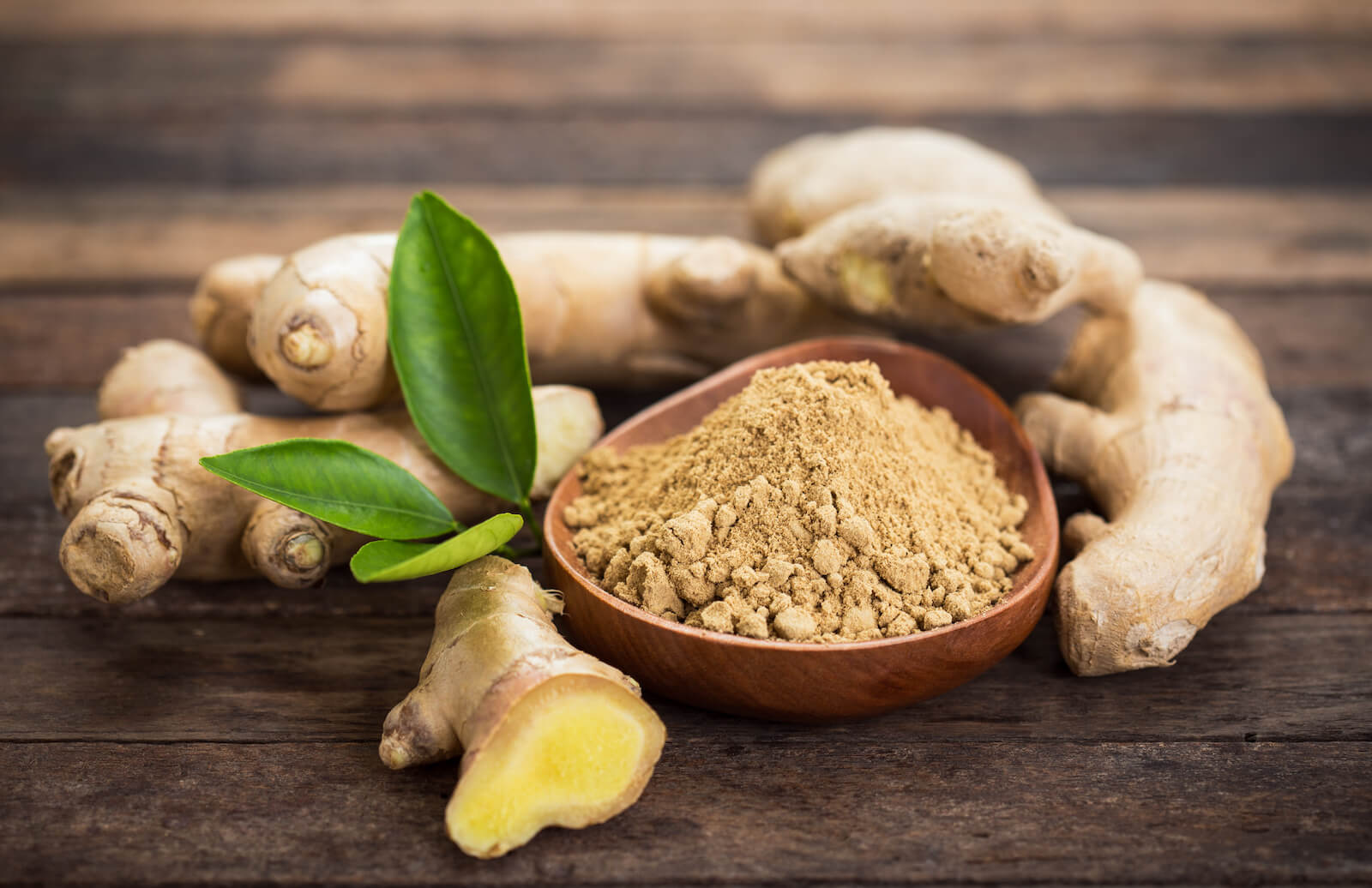
Why Prokinetic Drugs Are An Incomplete Solution
While prokinetics can be effective in some cases, slow motility may really be a symptom of an underlying gut issue, which is why just using prokinetics to improve constipation is an incomplete solution. If we keep treating the symptom, the root cause will never be resolved and we will continue to chase symptoms. We want to focus on healing rather than symptom management.
Prokinetic drugs have also been shown to cause more frequent and severe side effects than natural options. For example, common side effects of mosapride include diarrhea, constipation, headaches, dizziness, insomnia, and skin problems. Lubiprostone may lead to similar side effects, as well as heartburn and fatigue.
Many things can contribute to poor gut motility, and those are the issues that we should look to resolve in treatment for constipation, SIBO, and other gastrointestinal concerns.
Here are a few of the underlying causes that may be leading to constipation:
- Inflammation from any number of factors such as an inflammatory diet, leaky gut, use of antibiotics, and even lifestyle factors such as chronic stress or poor sleep can lead to constipation [35, 36].
- Food poisoning can contribute to constipation by damaging the gut microbiome and stimulating the production of antibodies that hamper motility [37]. That reduced motility can cause food to stagnate and further alter the balance of intestinal microbes, eventually leading to SIBO, which can cause constipation. Although prokinetics may help relieve the constipation, they may not actually treat the SIBO. It’s worth noting that people with constipation-predominant IBS often do not have the antibodies that slow down motility, which reminds us that constipation can occur without them [38, 39].
- Gut dysbiosis (an imbalance of the bacteria in the gut) leads to constipation in many people. Gut dysbiosis can be due to many facts, such as inflammation and food poisoning mentioned above [35, 40].
- Damage to the ICC (interstitial cells of Cajal), whether from autoimmune issues or food poisoning, may lead to constipation [39].

Resolving Gut Issues
Improving the underlying causes of slow gut motility doesn’t have to be complicated. For most people, we can use three interventions: an anti-inflammatory diet, probiotics, and (if needed) herbal antimicrobials, to create better gut health.
Anti-inflammatory Diet
I suggest most of my patients start with a Paleo diet in order to decrease inflammation and improve gut health. The Paleo diet removes foods that create an immune response such as grains, gluten, legumes, and dairy [41]. The paleo diet also improves the gut microbiome, which as we noted earlier, is important when it comes to treating SIBO, IBS, and other digestive concerns [42, 43].
If a Paleo diet doesn’t provide sufficient relief, it’s worth trying a low FODMAP diet next. The low-FODMAP diet has also been shown to be effective for treating inflammation and an imbalanced gut microbiome that may be leading to IBS or SIBO. A low-FODMAP diet restricts bacteria-feeding carbs, or, fermentable oligo-, di-, mono-saccharides and polyols such as wheat, onion, legumes, dairy, and fructose which can ferment in the gut and cause gut issues, including constipation [44, 45, 46].
Probiotics
Probiotics are incredibly important for overall gut health and should be part of the plan for any dysfunction of the gut.
Probiotics have consistently been shown to be helpful in treating IBS, SIBO, and constipation.
- A meta-analysis of 42 randomized control trials found that probiotics plus mosapride appeared to have better results than other interventions for improving constipation dominant IBS and chronic constipation [12, 47].
- In studies where patients with IBS were given probiotics or a placebo, the probiotic group had improvement in all types of IBS symptoms when compared to the placebo group [48, 49, 50].
- IBS (including IBS-C) is often caused by an imbalance of gut bacteria [51]. Probiotics improve the constipation and bloating associated with IBS [10, 52].
- Probiotics have been shown to be an effective treatment for SIBO [17].
Not only have probiotics been shown to improve the symptom of constipation, but probiotics can also resolve many of the underlying causes of constipation.
- Probiotics help to balance the gut bacteria, which in turn support the immune system and improve the gut barrier [53]. The gut microbes also affect the brain-gut connection, in part by improving the signals between neurotransmitters that affect gut motility [53, 54].
- Probiotics are highly effective at resolving leaky gut, which may be an underlying cause of some cases of IBS or SIBO [55, 56].
Antimicrobials
If trying an anti-inflammatory diet and probiotics do not resolve your symptoms, you may want to try herbal antimicrobials. These can help to remove unwanted gut microbes that may be contributing to dysbiosis and dysmotility. SIBO treatment often includes the use of prescription antibiotics, which have been shown to eliminate SIBO for 67% of patients [57].
Herbal antimicrobials work in the same way as antibacterials and have also been shown to be effective in resolving SIBO [58, 59].
When to Use Prokinetics
Prokinetics have been shown to help with constipation. You and your healthcare professional may choose to use them for a short period of time. However, there are risk factors with some of the pharmaceutical prokinetics, and they may not resolve the underlying issue causing the dysmotility.
This is why I find it best to work on improving the gut through an anti-inflammatory diet, probiotics, and antimicrobials as needed. If those interventions do not work well enough, and constipation or other SIBO symptoms are getting in the way of your daily functioning, then you may want to look at using prokinetics while your gut improves.
You will want to work with your healthcare provider, especially if you will be using pharmaceutical prokinetics, as you will need a prescription and will want to monitor any adverse side effects.
A functional medicine provider will probably lean towards one of the natural prokinetics first, as they have been shown to often be as effective as pharmaceutical prokinetics with fewer side effects.
Putting It All Together
There can be a time and place for prokinetics, but we generally do not want them to be our first step when dealing with slow gut motility. For your long-term health, focus on resolving the root cause of poor gut motility, such as inflammation and gut dysbiosis. My book, Healthy Gut, Healthy You, can give you more information on gut health and inflammation as well as more details on using an anti-inflammatory diet, probiotics, and antimicrobials. If you would like more personalized help, you can visit our functional medicine center virtually or in person.
Dr. Michael Ruscio is a DC, natural health provider, researcher, and clinician. He serves as an Adjunct Professor at the University of Bridgeport and has published numerous papers in scientific journals as well as the book Healthy Gut, Healthy You. He also founded the Ruscio Institute of Functional Health, where he helps patients with a wide range of GI conditions and serves as the Head of Research.➕ References
- Al-Shboul OA. The importance of interstitial cells of cajal in the gastrointestinal tract. Saudi J Gastroenterol. 2013 Feb;19(1):3–15. DOI: 10.4103/1319-3767.105909. PMID: 23319032. PMCID: PMC3603487.
- Kessing BF, Smout AJPM, Bennink RJ, Kraaijpoel N, Oors JM, Bredenoord AJ. Prucalopride decreases esophageal acid exposure and accelerates gastric emptying in healthy subjects. Neurogastroenterol Motil. 2014 Aug;26(8):1079–86. DOI: 10.1111/nmo.12359. PMID: 24891067.
- Mozaffari S, Nikfar S, Abdollahi M. Metabolic and toxicological considerations for the latest drugs used to treat irritable bowel syndrome. Expert Opin Drug Metab Toxicol. 2013 Apr;9(4):403–21. DOI: 10.1517/17425255.2013.759558. PMID: 23330973.
- Quigley EMM. Prokinetics in the management of functional gastrointestinal disorders. J Neurogastroenterol Motil. 2015 Jul 30;21(3):330–6. DOI: 10.5056/jnm15094. PMID: 26130629. PMCID: PMC4496896.
- Pimentel M, Morales W, Lezcano S, Sun-Chuan D, Low K, Yang J. Low-dose nocturnal tegaserod or erythromycin delays symptom recurrence after treatment of irritable bowel syndrome based on presumed bacterial overgrowth. Gastroenterol Hepatol (N Y). 2009 Jun;5(6):435–42. PMID: 20574504. PMCID: PMC2886395.
- PubChem. Levosulpiride | C15H23N3O4S – PubChem.
- Revaiah PC, Kochhar R, Rana SV, Berry N, Ashat M, Dhaka N, et al. Risk of small intestinal bacterial overgrowth in patients receiving proton pump inhibitors versus proton pump inhibitors plus prokinetics. JGH Open. 2018 Apr 2;2(2):47–53. DOI: 10.1002/jgh3.12045. PMID: 30483563. PMCID: PMC6206996.
- Leppert W. Emerging therapies for patients with symptoms of opioid-induced bowel dysfunction. Drug Des Devel Ther. 2015 Apr 16;9:2215–31. DOI: 10.2147/DDDT.S32684. PMID: 25931815. PMCID: PMC4404965.
- Ploesser J, Weinstock LB, Thomas E. Low dose naltrexone: side effects and efficacy in gastrointestinal disorders. Int J Pharm Compd. 2010 Apr;14(2):171–3. PMID: 23965429.
- Ohtsu T, Haruma K, Ide Y, Takagi A. The Effect of Continuous Intake of Lactobacillus gasseri OLL2716 on Mild to Moderate Delayed Gastric Emptying: A Randomized Controlled Study. Nutrients. 2021 May 28;13(6). DOI: 10.3390/nu13061852. PMID: 34071718. PMCID: PMC8230235.
- Miller LE, Ouwehand AC, Ibarra A. Effects of probiotic-containing products on stool frequency and intestinal transit in constipated adults: systematic review and meta-analysis of randomized controlled trials. Ann Gastroenterol. 2017;30(6):629-639. doi: 10.20524/aog.2017.0192. Epub 2017 Sep 21. PMID: 29118557; PMCID: PMC5670282.
- Shi Q, Tan L, Liu C, Wang H, Zhang J, Wang H, et al. Comparative efficacy of pharmacological and nonpharmacological treatments for chronic idiopathic constipation in China: a Bayesian network meta-analysis. BMC Complement Altern Med. 2019 Nov 14;19(1):311. DOI: 10.1186/s12906-019-2741-z. PMID: 31727037. PMCID: PMC6857160.
- Wen Y, Li J, Long Q, Yue CC, He B, Tang XG. The efficacy and safety of probiotics for patients with constipation-predominant irritable bowel syndrome: A systematic review and meta-analysis based on seventeen randomized controlled trials. Int J Surg. 2020 Jul;79:111-119. doi: 10.1016/j.ijsu.2020.04.063. Epub 2020 May 6. PMID: 32387213.
- McFarland LV, Dublin S. Meta-analysis of probiotics for the treatment of irritable bowel syndrome. World J Gastroenterol. 2008 May 7;14(17):2650-61. doi: 10.3748/wjg.14.2650. PMID: 18461650; PMCID: PMC2709042.
- Alexandre V, Bertin C, Boubaya M, Airinei G, Bouchoucha M, Benamouzig R. Randomized clinical trial: efficacy of a food supplement, TRANSITECH, on healthy individuals with mild intermittent constipation. Eur J Gastroenterol Hepatol. 2016 Sep;28(9):1087-93. doi: 10.1097/MEG.0000000000000672. PMID: 27347788.
- Lim YJ, Jamaluddin R, Hazizi AS, Chieng JY. Effects of Synbiotics among Constipated Adults in Serdang, Selangor, Malaysia-A Randomised, Double-Blind, Placebo-Controlled Trial. Nutrients. 2018 Jun 26;10(7):824. doi: 10.3390/nu10070824. PMID: 29949873; PMCID: PMC6073678.
- Zhong C, Qu C, Wang B, Liang S, Zeng B. Probiotics for Preventing and Treating Small Intestinal Bacterial Overgrowth: A Meta-Analysis and Systematic Review of Current Evidence. J Clin Gastroenterol. 2017 Apr;51(4):300–11. DOI: 10.1097/MCG.0000000000000814. PMID: 28267052.
- Zhao X, Fang Y, Ye J, Qin F, Lu W, Gong H. A meta-analysis of randomized controlled trials of a traditional Chinese medicine prescription, modified RunChang-Tang, in treating functional constipation. Medicine (Baltimore). 2021 May 21;100(20):e25760. doi: 10.1097/MD.0000000000025760. PMID: 34011036; PMCID: PMC8137032.
- Yang N, Jiang X, Qiu X, Hu Z, Wang L, Song M. Modified chaihu shugan powder for functional dyspepsia: meta-analysis for randomized controlled trial. Evid Based Complement Alternat Med. 2013;2013:791724. doi: 10.1155/2013/791724. Epub 2013 May 13. PMID: 23762161; PMCID: PMC3666434.
- Qin F, Liu JY, Yuan JH. Chaihu-Shugan-San, an oriental herbal preparation, for the treatment of chronic gastritis: a meta-analysis of randomized controlled trials. J Ethnopharmacol. 2013 Mar 27;146(2):433-9. doi: 10.1016/j.jep.2013.01.029. Epub 2013 Jan 29. PMID: 23376045.
- Qin F, Huang X, Ren P. Chinese herbal medicine modified xiaoyao san for functional dyspepsia: meta-analysis of randomized controlled trials. J Gastroenterol Hepatol. 2009 Aug;24(8):1320-5. doi: 10.1111/j.1440-1746.2009.05934.x. PMID: 19702899.
- Wang C, Zhu M, Xia W, Jiang W, Li Y. Meta-analysis of traditional Chinese medicine in treating functional dyspepsia of liver-stomach disharmony syndrome. J Tradit Chin Med. 2012 Dec;32(4):515-22. doi: 10.1016/s0254-6272(13)60063-1. PMID: 23427381.
- Saller R, Pfister-Hotz G, Iten F, Melzer J, Reichling J. [Iberogast: a modern phytotherapeutic combined herbal drug for the treatment of functional disorders of the gastrointestinal tract (dyspepsia, irritable bowel syndrome)–from phytomedicine to “evidence based phytotherapy.” A systematic review]. Forsch Komplementarmed Klass Naturheilkd. 2002 Dec;9 Suppl 1:1–20. DOI: 10.1159/000068645. PMID: 12618546.
- Gundermann KJ, Godehardt E, Ulbrich M. [The efficacy of a combination herbal medicine in the treatment of functional dyspepsia. Meta-analysis of randomized double-blind studies on the basis of a valid gastrointestinal symptom profile]. MMW Fortschr Med. 2004 Aug 5;146 Suppl 2:71–6. PMID: 16739362.
- Gundermann K-J, Godehardt E, Ulbrich M. Efficacy of a herbal preparation in patients with functional dyspepsia: a meta-analysis of double-blind, randomized, clinical trials. Adv Ther. 2003 Feb;20(1):43–9. DOI: 10.1007/BF02850118. PMID: 12772817.
- Madisch A, Vinson BR, Abdel-Aziz H, Kelber O, Nieber K, Kraft K, et al. Modulation of gastrointestinal motility beyond metoclopramide and domperidone : Pharmacological and clinical evidence for phytotherapy in functional gastrointestinal disorders. Wien Med Wochenschr. 2017 May;167(7–8):160–8. DOI: 10.1007/s10354-017-0557-3. PMID: 28424994. PMCID: PMC5409921.
- Phillips S, Hutchinson S, Ruggier R. Zingiber officinale does not affect gastric emptying rate. A randomised, placebo-controlled, crossover trial. Anaesthesia. 1993 May;48(5):393–5. DOI: 10.1111/j.1365-2044.1993.tb07011.x. PMID: 8317647.
- Wu K-L, Rayner CK, Chuah S-K, Changchien C-S, Lu S-N, Chiu Y-C, et al. Effects of ginger on gastric emptying and motility in healthy humans. Eur J Gastroenterol Hepatol. 2008 May;20(5):436–40. DOI: 10.1097/MEG.0b013e3282f4b224. PMID: 18403946.
- Lazzini S, Polinelli W, Riva A, Morazzoni P, Bombardelli E. The effect of ginger (Zingiber officinalis) and artichoke (Cynara cardunculus) extract supplementation on gastric motility: a pilot randomized study in healthy volunteers. Eur Rev Med Pharmacol Sci. 2016;20(1):146–9. PMID: 26813467.
- Hawrelak JA, Wohlmuth H, Pattinson M, Myers SP, Goldenberg JZ, Harnett J, et al. Western herbal medicines in the treatment of irritable bowel syndrome: A systematic review and meta-analysis. Complement Ther Med. 2020 Jan;48:102233. DOI: 10.1016/j.ctim.2019.102233. PMID: 31987249.
- Tan N, Gwee KA, Tack J, Zhang M, Li Y, Chen M, et al. Herbal medicine in the treatment of functional gastrointestinal disorders: A systematic review with meta-analysis. J Gastroenterol Hepatol. 2020 Apr;35(4):544–56. DOI: 10.1111/jgh.14905. PMID: 31674057.
- Mosaffa-Jahromi M, Lankarani KB, Pasalar M, Afsharypuor S, Tamaddon A-M. Efficacy and safety of enteric coated capsules of anise oil to treat irritable bowel syndrome. J Ethnopharmacol. 2016 Dec 24;194:937–46. DOI: 10.1016/j.jep.2016.10.083. PMID: 27815079.
- Furnari M, Parodi A, Gemignani L, Giannini EG, Marenco S, Savarino E, et al. Clinical trial: the combination of rifaximin with partially hydrolysed guar gum is more effective than rifaximin alone in eradicating small intestinal bacterial overgrowth. Aliment Pharmacol Ther. 2010 Oct;32(8):1000–6. DOI: 10.1111/j.1365-2036.2010.04436.x. PMID: 20937045.
- Vavricka SR, Greuter T. Gastroparesis and dumping syndrome: current concepts and management. J Clin Med. 2019 Jul 29;8(8). DOI: 10.3390/jcm8081127. PMID: 31362413. PMCID: PMC6723467.
- Hawrelak JA, Myers SP. The causes of intestinal dysbiosis: a review. Altern Med Rev. 2004 Jun;9(2):180–97. PMID: 15253677.
- Menys A, Makanyanga J, Plumb A, Bhatnagar G, Atkinson D, Emmanuel A, et al. Aberrant motility in unaffected small bowel is linked to inflammatory burden and patient symptoms in crohn’s disease. Inflamm Bowel Dis. 2016 Feb;22(2):424–32. DOI: 10.1097/MIB.0000000000000601. PMID: 26509756.
- Thabane M, Marshall JK. Post-infectious irritable bowel syndrome. World J Gastroenterol. 2009 Aug 7;15(29):3591–6. DOI: 10.3748/wjg.15.3591. PMID: 19653335. PMCID: PMC2721231.
- Rezaie A, Park SC, Morales W, Marsh E, Lembo A, Kim JH, et al. Assessment of Anti-vinculin and Anti-cytolethal Distending Toxin B Antibodies in Subtypes of Irritable Bowel Syndrome. Dig Dis Sci. 2017 Jun;62(6):1480–5. DOI: 10.1007/s10620-017-4585-z. PMID: 28451914.
- Pimentel M, Morales W, Rezaie A, Marsh E, Lembo A, Mirocha J, et al. Development and validation of a biomarker for diarrhea-predominant irritable bowel syndrome in human subjects. PLoS ONE. 2015 May 13;10(5):e0126438. DOI: 10.1371/journal.pone.0126438. PMID: 25970536. PMCID: PMC4430499.
- Menees S, Chey W. The gut microbiome and irritable bowel syndrome. [version 1; peer review: 3 approved]. F1000Res. 2018 Jul 9;7. DOI: 10.12688/f1000research.14592.1. PMID: 30026921. PMCID: PMC6039952.
- Whalen KA, McCullough ML, Flanders WD, Hartman TJ, Judd S, Bostick RM. Paleolithic and Mediterranean Diet Pattern Scores Are Inversely Associated with Biomarkers of Inflammation and Oxidative Balance in Adults. J Nutr. 2016 Jun;146(6):1217–26. DOI: 10.3945/jn.115.224048. PMID: 27099230. PMCID: PMC4877627.
- Roland BC, Ciarleglio MM, Clarke JO, Semler JR, Tomakin E, Mullin GE, et al. Small intestinal transit time is delayed in small intestinal bacterial overgrowth. J Clin Gastroenterol. 2015 Aug;49(7):571–6. DOI: 10.1097/MCG.0000000000000257. PMID: 25319735.
- Hakansson A, Molin G. Gut microbiota and inflammation. Nutrients. 2011 Jun 3;3(6):637–82. DOI: 10.3390/nu3060637. PMID: 22254115. PMCID: PMC3257638.
- Dionne J, Ford AC, Yuan Y, Chey WD, Lacy BE, Saito YA, et al. A Systematic Review and Meta-Analysis Evaluating the Efficacy of a Gluten-Free Diet and a Low FODMAPs Diet in Treating Symptoms of Irritable Bowel Syndrome. Am J Gastroenterol. 2018 Sep;113(9):1290–300. DOI: 10.1038/s41395-018-0195-4. PMID: 30046155.
- Staudacher HM, Whelan K. The low FODMAP diet: recent advances in understanding its mechanisms and efficacy in IBS. Gut. 2017 Aug;66(8):1517–27. DOI: 10.1136/gutjnl-2017-313750. PMID: 28592442.
- Marsh A, Eslick EM, Eslick GD. Does a diet low in FODMAPs reduce symptoms associated with functional gastrointestinal disorders? A comprehensive systematic review and meta-analysis. Eur J Nutr. 2016 Apr;55(3):897–906. DOI: 10.1007/s00394-015-0922-1. PMID: 25982757.
- Choi CH, Kwon JG, Kim SK, Myung SJ, Park KS, Sohn CI, et al. Efficacy of combination therapy with probiotics and mosapride in patients with IBS without diarrhea: a randomized, double-blind, placebo-controlled, multicenter, phase II trial. Neurogastroenterol Motil. 2015 May;27(5):705–16. DOI: 10.1111/nmo.12544. PMID: 25809913.
- Martoni CJ, Srivastava S, Leyer GJ. Lactobacillus acidophilus DDS-1 and Bifidobacterium lactis UABla-12 Improve Abdominal Pain Severity and Symptomology in Irritable Bowel Syndrome: Randomized Controlled Trial. Nutrients. 2020 Jan 30;12(2). DOI: 10.3390/nu12020363. PMID: 32019158. PMCID: PMC7071206.
- Ford AC, Quigley EMM, Lacy BE, Lembo AJ, Saito YA, Schiller LR, et al. Efficacy of prebiotics, probiotics, and synbiotics in irritable bowel syndrome and chronic idiopathic constipation: systematic review and meta-analysis. Am J Gastroenterol. 2014 Oct;109(10):1547–61; quiz 1546, 1562. DOI: 10.1038/ajg.2014.202. PMID: 25070051.
- Ibarra A, Latreille-Barbier M, Donazzolo Y, Pelletier X, Ouwehand AC. Effects of 28-day Bifidobacterium animalis subsp. lactis HN019 supplementation on colonic transit time and gastrointestinal symptoms in adults with functional constipation: A double-blind, randomized, placebo-controlled, and dose-ranging trial. Gut Microbes. 2018 Feb 8;9(3):236–51. DOI: 10.1080/19490976.2017.1412908. PMID: 29227175. PMCID: PMC6219592.
- Wang L, Alammar N, Singh R, Nanavati J, Song Y, Chaudhary R, et al. Gut Microbial Dysbiosis in the Irritable Bowel Syndrome: A Systematic Review and Meta-Analysis of Case-Control Studies. J Acad Nutr Diet. 2020 Apr;120(4):565–86. DOI: 10.1016/j.jand.2019.05.015. PMID: 31473156.
- Whelan K. Probiotics and prebiotics in the management of irritable bowel syndrome: a review of recent clinical trials and systematic reviews. Curr Opin Clin Nutr Metab Care. 2011 Nov;14(6):581–7. DOI: 10.1097/MCO.0b013e32834b8082. PMID: 21892075.
- Pimentel M, Lembo A. Microbiome and its role in irritable bowel syndrome. Dig Dis Sci. 2020 Mar;65(3):829–39. DOI: 10.1007/s10620-020-06109-5. PMID: 32026278.
- Tran N, Zhebrak M, Yacoub C, Pelletier J, Hawley D. The gut-brain relationship: Investigating the effect of multispecies probiotics on anxiety in a randomized placebo-controlled trial of healthy young adults. J Affect Disord. 2019 Jun 1;252:271–7. DOI: 10.1016/j.jad.2019.04.043. PMID: 30991255.
- Sindhu KNC, Sowmyanarayanan TV, Paul A, Babji S, Ajjampur SSR, Priyadarshini S, et al. Immune response and intestinal permeability in children with acute gastroenteritis treated with Lactobacillus rhamnosus GG: a randomized, double-blind, placebo-controlled trial. Clin Infect Dis. 2014 Apr;58(8):1107–15. DOI: 10.1093/cid/ciu065. PMID: 24501384. PMCID: PMC3967829.
- Mujagic Z, de Vos P, Boekschoten MV, Govers C, Pieters H-JHM, de Wit NJW, et al. The effects of Lactobacillus plantarum on small intestinal barrier function and mucosal gene transcription; a randomized double-blind placebo controlled trial. Sci Rep. 2017 Jan 3;7:40128. DOI: 10.1038/srep40128. PMID: 28045137. PMCID: PMC5206730.
- Gatta L, Scarpignato C. Systematic review with meta-analysis: rifaximin is effective and safe for the treatment of small intestine bacterial overgrowth. Aliment Pharmacol Ther. 2017 Mar;45(5):604–16. DOI: 10.1111/apt.13928. PMID: 28078798. PMCID: PMC5299503.
- Chen C, Tao C, Liu Z, Lu M, Pan Q, Zheng L, et al. A Randomized Clinical Trial of Berberine Hydrochloride in Patients with Diarrhea-Predominant Irritable Bowel Syndrome. Phytother Res. 2015 Nov;29(11):1822–7. DOI: 10.1002/ptr.5475. PMID: 26400188.
- Chedid V, Dhalla S, Clarke JO, Roland BC, Dunbar KB, Koh J, et al. Herbal therapy is equivalent to rifaximin for the treatment of small intestinal bacterial overgrowth. Glob Adv Health Med. 2014 May;3(3):16–24. DOI: 10.7453/gahmj.2014.019. PMID: 24891990. PMCID: PMC4030608.
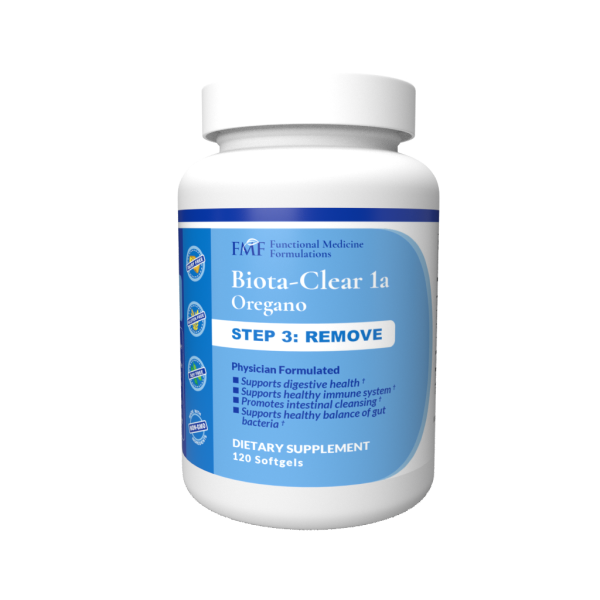
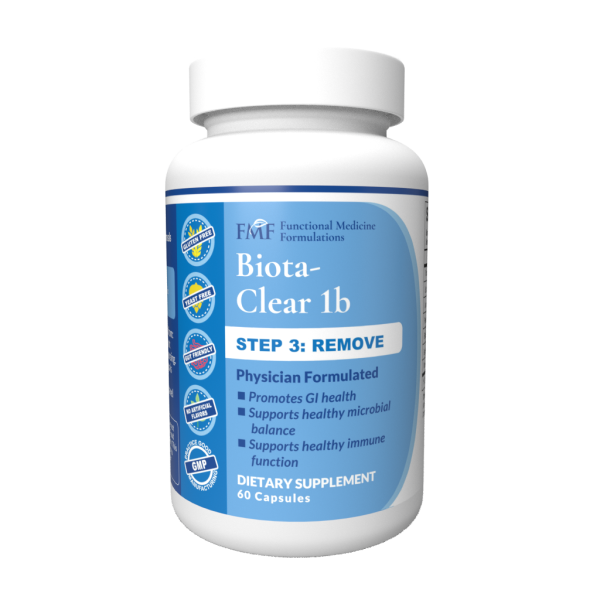
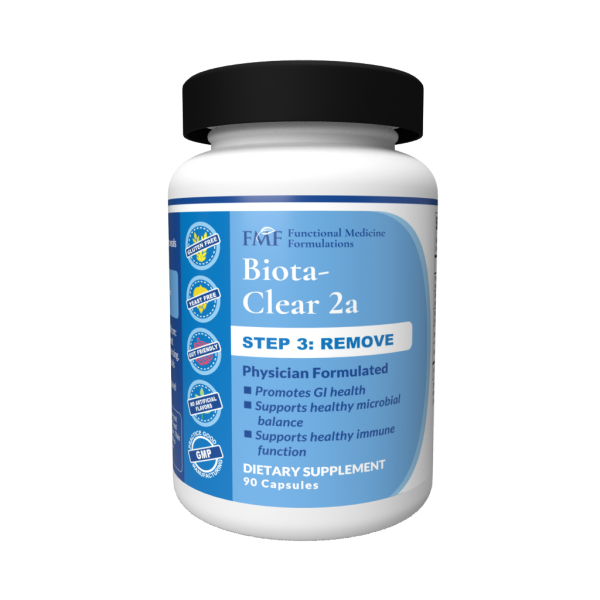
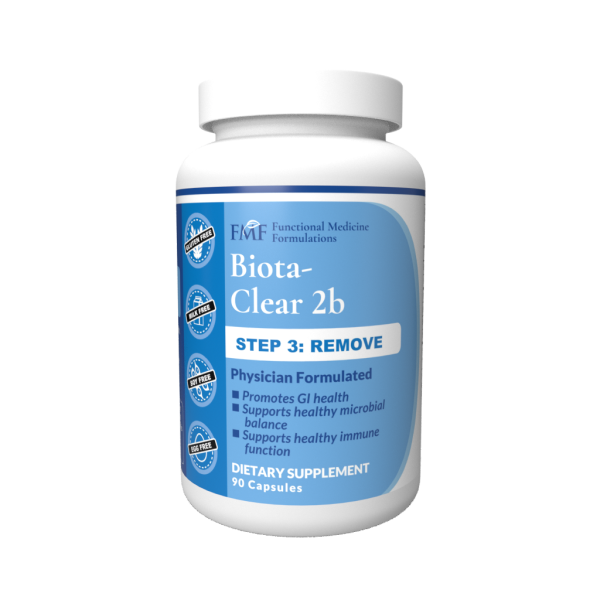

Discussion
I care about answering your questions and sharing my knowledge with you. Leave a comment or connect with me on social media asking any health question you may have and I just might incorporate it into our next listener questions podcast episode just for you!